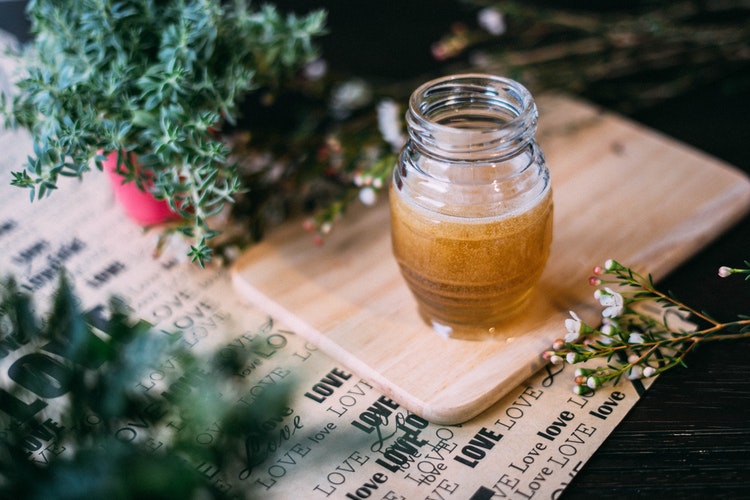While stress has long been recognized as a significant mental health problem for millions across the globe, 2020 brought it to the forefront like never before. A report from the American Psychological Association (APA) found that 78 percent of adults were experiencing significant stress from the coronavirus pandemic, with 67 percent saying the pandemic had increased their daily stress.
This increased stress was linked to negative and easily observed outcomes, including unexpected mood swings, increased body tension and a shorter temper. Long-term, chronic stress has been linked to heart disease, depression, sleep disorders, weight gain and other serious health problems.
While external stressors are certainly a major issue, Alexy Goldstein, founder of New U Life is quick to note that good nutrition is vital for combatting stress. “The combination of a healthy diet, exercise and sufficient sleep leaves the body better equipped to deal with day-to-day stress. Unfortunately, many people have a diet that keeps their body from properly fighting stress. For many, dietary supplements could be key to better coping with their daily challenges.”
1. Ashwagandha
“Ashwagandha is a native herb of India that has long been used in Ayurvedic medicine,” Goldstein explains. “As an adaptogen, it helps regulate how stress and anxiety affect the body. It accomplishes this by decreasing your cortisol levels so you can stay calm, even during particularly stressful moments.”
Studies of the supplement indicate that it can help users better cope with both physical and mental stress. In fact, one study found that those who used an ashwagandha extract over a 60-day period reduced their morning cortisol levels by 23 percent.
In other words, they were less stressed at the start of the day, setting a positive tone for everything that was to come afterward. By targeting cortisol production, ashwagandha may contribute to reducing the risk of depression and anxiety associated with stress.
2. Rhodiola Rosea
“Rhodiola is another powerful adaptogen derived from an herb that grows in the mountain areas of northern Asia and Europe,” Goldstein says. “The herb contains rosin and salidroside, which directly combat stress. Taking rhodiola supplements has even been found to help workers struggling with burnout. Rhodiola fights symptoms like exhaustion and irritability so you can feel less stressed and anxious and be better able to give your best effort. Its powerful calming effect is a big part of why we include it as an ingredient in our NeuraVie™ brain health product.”
In addition to combating stress, rhodiola has also been found to help individuals suffering from chronic fatigue. In one study, participants given a daily 400mg extract of rhodiola saw symptoms such as poor sleep quality and trouble concentrating improve after one week.
Stress and poor sleep often live in a vicious cycle — as one worsens, so does the other. By quickly counteracting both of these issues, rhodiola can dramatically boost energy and enthusiasm.
3. Magnesium
Magnesium is a mineral found in a wide variety of foods, including avocados, nuts, whole grains, legumes and even dark chocolate. “Though magnesium is widely available in many of the foods we eat, many people still do not get enough of this vital nutrient,” Goldstein says.
“Quite simply, our propensity for heavily processed foods keeps us from getting a mineral that could help us feel less stressed. Studies indicate that this mineral can reduce stress and anxiety, but magnesium does so much more than that. It helps manage blood glucose levels, bone strength, nerve function, muscle control and more. It may not get as much attention as other vitamins and minerals, but it is undeniably important for good health.”
In addition to fighting anxiety, magnesium can help assist with migraines, which often occur when someone is feeling particularly stressed. Besides nutritional supplements, healthy snacks are an easy way to get more magnesium in your diet. A handful of almonds, a cup of yogurt or a banana all offer high magnesium content.
4. Melatonin
Melatonin is associated with helping users fall asleep quickly at night — but this can have a bigger impact on stress relief than you might realize. “Sleep quality and stress often go hand in hand,” Goldstein explains.
“When you are extremely stressed, you are more likely to suffer from insomnia, which makes it hard to fall asleep and stay asleep. Poor sleep quality leaves you fatigued and irritable, making everyday stressors harder to deal with. By working with your body’s own natural output of melatonin, these supplements can help stressed individuals get the rest they need to recover and feel better.”
In conjunction with multiple studies that indicate melatonin improves sleep latency, sleep quality and total sleep time, it is clear that these supplements directly counteract a leading contributor to stress.
Improved Nutrition for Reduced Stress
As these examples reveal, there are many natural supplements that can play a significant role in reducing stress levels and improving mood. While those suffering from stress and anxiety certainly should be mindful of other contributing lifestyle factors, the right combination of dietary supplements can go a long way in helping users de-stress and face the future with confidence.

